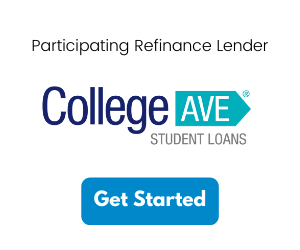A Smart Way to Pay Off Your Student Loans for Less
Are student loan payments making it hard to balance your budget? Refinancing might be the solution you’re looking for, especially if you want to lower your interest rate or reduce your monthly payments. Before starting the process, it’s important to define your refinancing objectives. Are you hoping to save money by getting a lower interest rate, or is making your monthly payments more manageable your top priority? Knowing your goals will help you find a lender that best aligns with your needs.
Refinancing can offer significant advantages, particularly if you have a strong credit score. Good credit can unlock access to highly competitive interest rates, which may lower the overall amount you’ll pay over the life of your loan. Many reputable lenders also provide refinancing with no hidden fees, giving you peace of mind while helping you borrow an amount that fits your financial situation.
If refinancing feels like the right move, take the time to explore your options and compare lenders carefully. Look for offerings that match your financial goals, such as flexible repayment terms and clear, upfront information about loan conditions. By doing your research and selecting the right refinancing plan, you can ease the pressure on your budget and work toward a more secure financial future.
Best Student Loan Refinance Companies for December 2024
Consider your student loan refinancing goals when comparing lenders to find the right student loan refinance solution for you. When it comes to student loan refinancing, there is no one company that is the right fit for every borrower. You will need to consider your current loan terms, financial goals, and more.
SoFi Student Loan Refinance
Features of a SoFi student loan refinance include:
- No origination fee
- No prepayment penalty or other hidden fees
- Variable and fixed rates available
- Combine federal and private student loans
College Ave Student Loan Refinance
Features of a College Ave student loan refinance include:
- Choose how long you take to repay your loan
- No application or origination fees
- Refinance up tp $300,000
- Variable and fixed rates available
- Combine federal and private student loan together
Iowa Student Loan Refinance
Features of an Iowa student loan refinance:
- Fixed rate refinance loans
- No origination, prepayment or late fees
- Policies created to benefit borrowers and their families
- Multiple repayment options
- No obligation quote in minutes with no impact on your credit score
PenFed Student Loan Refinance
Features of a PenFed student loan refinance:
- Spouses can refinance their loans together
- No fees or prepayment penalties
- Work with a personal loan advisor through every step of the process
- Parents can refinance their student loans
- Choose from multiple repayment terms
Nelnet Bank, Member FDIC Student Loan Refinance
Features of a Nelnet Bank, Member FDIC student loan refinance:
- See the rate you qualify for in as little as two minutes
- Refinancing for undergraduate, graduate, MBA, law school and health professions
- Minimum income $36,000
- Cosigner release available
- No application or prepayment fees
student loan information>>More: Student Loan Refinance
>>More: Student Loan Refinance Interest Rates
>>More: Refinance Student Loans in 4 Simple Steps
Best Student Loan Refinance Rates
The best student loan refinance rates start at around 4.47%. When it comes to finding the best loan and low rates, there are many things to consider. The best rate you will qualify for will likely be a variable interest rate. Variable interest rates fluctuate with the market, so while your initial variable rate may be low, keep in mind that it could increase over time, which will increase your monthly payment amount as well.
The lowest fixed rates are typically higher than the lowest variable rate but will stay the same for the life of the loan. Better rates are offered to borrowers who have stronger FICO® scores and meet the qualifications as determined by each lender. Some borrowers choose to apply with a strong creditworthy cosigner to improve their loan rates.
Student Loan Refinance Calculator
Using a student loan refinance calculator can help you estimate your new monthly payment amount and the total cost of the loan. The calculator below allows you to add multiple student loans and see the impact refinancing can make on your monthly payment.

| Loan Type | Amount Borrowed | Current Payment | Current Term | Total Cost of Loan | |
|---|---|---|---|---|---|
| Loan Type | Amount Borrowed | New Payment | New Term | Total Cost of Loan |
|---|---|---|---|---|
New Monthly Payments:
This calculator is provided for informational purposes only. Calculated results are based on many factors, including the assumptions provided by the user. We cannot and do not provide any guarantees, conditions or warranties as to result accuracy or applicability to the user’s particular circumstances. It is the responsibility of the user to verify that all of the output and resulting calculations are correct. This calculator should not be used by anyone to make material financial decisions and should be used solely for informational purposes. Actual terms will be set by your lender or your school. We encourage any user to seek personalized advice from qualified professionals regarding all personal finance issues. The results of this calculator are not based on any information provided by or an affiliation with any school.
Best Way to Refinance Student Loans
The best way to refinance your student loans is to look for a private lender that offers competitive interest rates, fees, and loan benefits. You can scroll up to see our lineup and get started or learn the steps to complete the refinance process in our How To section.
Some quick words of advice. You may want to start with an understanding of your credit history. Know where you stand in terms of your credit score and which items are listed on your report. If there is any inaccurate information you will want to resolve this so it doesn’t get in the way of the application process to refinance your student loans. You can get a free copy of your credit report at AnnualCreditReport.com. The free report will not include your actual credit score, just the items contained in your credit history. However, you can purchase copies of your report with your credit score included through Equifax, Experian, or TransUnion.
Pros and Cons of Refinancing Student Loans
Here are some pros and cons to consider regarding student loan refinancing. You should look at what you’ll potentially save versus any downsides. This boils down to the problem you are trying to solve, along with any financial benefits, as well as an honest review of whether you’d be sacrificing any federal benefits. (This applies if you include federal student loans in your refinance loan.)
| Problem You're Trying to Solve | Is Refinancing Worth It? |
|---|---|
| You're looking to reduce your interest rate | Yes. Even with lower loan balances, reducing your annual percentage rate (APR) can help you save money. |
| You have multiple loans and you want to simplify repayment | Yes, refinancing your student loans into one loan will result in one monthly payment. |
| You want to release your cosigner | Yes, so long as you qualify without a cosigner or a different cosigner, you can remove your existing cosigner during the refinance process. |
| You want to transfer your parent loan debt to your child | Yes. But you should know that your child will need to apply for the refinanced loan and pass a credit check on their own merit. |
| You need to reduce your monthly payment | Yes. However, if you have federal loans and think you mat qualify for an income driven repayment plan, you may want to research your options. |
| You have federal student loans and you're pursuing a public-service career, or an occupation in a national/regional shortage area | Maybe not. At least not where your federal student loans are concerned. You should do some homework on student loan forgiveness programs to understand if you qualify. |
Student Loan Consolidation vs. Refinancing
The following table highlights the key difference between student loan consolidation and student loan refinancing.
| Direct Consolidation | Student Loan Refinancing |
|---|---|
| Combine 2 or more federal student loans together (with a few exceptions to consolidate a single loan) | Can combine both private and federal student loans together |
| Interest rate is simply the weighted average of all federal student loans, rounded up to the nearest 1/8th percent | Allows you to lower your interest rate and take advantage of competitive offers |
| Remains a federal student loan | Single loans can be refinanced |
| Provides an option for parents to refinance student loan debt in their child's name | |
| Refinanced federal loans are no longer eligible for benefits under the federal student loan program |
When to Refinance Student Loans
The best time to refinance your student loans is when interest rates are low, you have an established credit history or a creditworthy cosigner, and you have stable employment. Rates for December 2024 are as low as 4.47%. Also, most lenders require that you are no longer enrolled in school to be eligible. In other words, you would have either graduated or left school. This also means the time to refinance student loans is when you are employed.
Refinance Private Student Loans
Refinancing your private student loans can be a great way to reduce your interest rate and qualify for different repayment terms. This includes combining your existing student loans (private and/or federal—your choice) into one private student loan. It also can mean refinancing a single loan. A credit check is required to qualify.
Frequently Asked Questions
How Do You Qualify for a Student Loan Refinance?
To qualify for student loan refinance, you will need to meet the lender’s minimum eligibility criteria. This varies from one company to another. For example, some lenders may only refinance loans for students who have obtained a degree or live in certain states. With that in mind, here are some of the more common factors that lenders use to evaluate applicants looking to refinance student loans:
- Credit score - Lenders typically have a minimum credit score (for example, a FICO of around 670) that borrowers must meet to qualify for a loan to refinance student loan debt. A higher credit score usually means a lower interest rate.
- Credit history - Lenders run a credit check to examine your credit history and determine if you are creditworthy.
- Income - Many lenders have a minimum income that borrowers must meet.
- Debt-to-income ratio – Your lender will review how much outstanding debt you already have and compare that to your income to calculate your debt-to-income ratio.
- Minimum loan amount - Many lenders require borrowers to have at least $5,000 in existing loans to refinance.
- Maximum loan amount – Some lenders may limit how much student loan debt they are willing to refinance. Each lender may have different maximum loan amounts depending on the type of degree.
Should I Refinance My Student Loans?
You should consider refinancing your student loans if your monthly payments are unmanageable, you want to lower your interest rate, or you want a new repayment term for a single loan with a large balance. Of course, any or all of these could apply. Refinancing your student loans allows you to accomplish some key goals, including:
- Lower your interest rate. You may be able to get a lower interest rate which could potentially save you thousands of dollars during loan repayment.
- Reduce your monthly payment. By extending your loan repayment term from 10 years to perhaps 15 years or more, you could lower your monthly payment.
- Eliminate the hassle of paying multiple lenders. Refinancing your student loans could help you can reduce the stress of paying multiple loan servicers, as well as the risk of forgetting to pay one of your loans.
- Contribute more savings. With additional wiggle room in your monthly budget, you can set aside money for an emergency fund or short-term savings because life happens.
- Release a cosigner. If you needed a cosigner to help you qualify for an in-school loan (such as a private loan), refinancing your student loan debt is a way to release your cosigner.
- Continue to leverage tax deductions. Interest paid on a refinanced student loan may still qualify for a federal income tax deduction, subject to limitations on Adjusted Gross Income.
- No prepayment penalties. Private student loan lenders, including our partners that offer refinancing, do not charge a prepayment penalty.
How Often Can You Refinance Student Loans?
You can refinance your student loans multiple times, like refinancing a house. As market rates change or decrease, you may want to take advantage of a lower interest rate. And you can refinance an existing loan that was previously refinanced. There are virtually no limits on the number of times you can refinance your student loans. However, you should keep in mind that you hit reset on the repayment clock each time. This means you start over at the beginning of a new repayment term, whether that’s 10, 12, 15, 20 years or longer. However, you can always ask for a shorter term.
Another option, assuming your refinance loan lowers your monthly payment and extends your repayment term, is to pay more than your monthly payment and ask for that overpayment be applied to your principal balance. You just want to confirm that there are no prepayment penalties on your loan.
Can I Refinance Federal Student Loans?
Yes, you can refinance federal student loans. In fact, you can include your federal loans with any private loans you have. Or you can simply refinance federal loans on their own. The biggest benefit associated with refinancing federal student loans over opting for loan consolidation is that you may qualify for a lower interest rate. Currently, you cannot lower your interest rate under a federal Direct Consolidation Loan. But before you pull the trigger on refinancing federal loans, keep in mind that the federal government does not offer any options to refinance student loan debt. When you refinance your federal student loans, they become private loans. Make sure to review the benefits you may be giving up in the federal program, including deferment options and potential loan forgiveness (assuming you meet the criteria).
What Does it Mean to Refinance Student Loans?
Refinancing your student loans means combining multiple loans into one new loan so that you can have a single monthly payment, along with a new repayment term. It can also mean potentially qualifying for a lower interest rate. On top of that, you can refinance a single loan to achieve more favorable terms. However, you will need to pass a credit check to qualify.
Another aspect of refinancing student loans is that you can combine both federal and private student loans together. In fact, you can only achieve that through refinancing with a private lender. The Direct Consolidation Loan program does not offer this option. We highly encourage you to examine whether you are giving up benefits that are unique to the federal student loan program before including federal loans in a refinance.
Student Loan Refinance With Cosigner
It may be a smart move to apply for student loan refinancing with a cosigner. First, it could help you qualify for the loan in the first place since you must demonstrate that you are creditworthy with proof of income. If your work history or credit history is not strong enough, lenders may encourage you to apply with a creditworthy cosigner to qualify. Second, applying with a cosigner who will be jointly liable for the loan increases the lender’s confidence in your ability to make your loan payments. And the better your cosigner’s credit history, the lower the rate you may qualify for. So, there is an added financial incentive for you to add a cosigner.
Another thing to consider is the unexpected. It simply helps to have someone who has your back in the event you have difficulty making your payments. A cosigner is equally responsible for the loan, and therefore has a bigger commitment to step in and help if you fall on hard times. Some lenders do offer a cosigner release option on refinanced student loans after you meet a defined number of on-time, qualifying payments. You’ll need to pass a new credit check in your own name, but this option can be important when trying to find a cosigner as you can request their help temporarily.
Can You Refinance Student Loans While In School?
Most lenders will not allow you to refinance your student loans while you are still in school. You will need to complete your degree or confirm that you are no longer enrolled on a half-time basis or more. Policies vary by lender.
How Do You Refinance Student Loans?
Learning how to refinance your student loans is as easy as following some basic steps. It will take a little time to complete, but the application process is straightforward.
- Decide which loans you want to include in your refinance. This can include both federal and private student loans.
- If you need help locating your federal loans, log into your account on StudentAid.gov. (You will need to login with your FSA ID.)
- To track down each of your private loans, request a free copy of your credit report through Annual Credit Report. Your lenders and loan balances will be listed.
- Look for a lender that offers the types of features you need.
- Apply for the loan and add a cosigner, if needed. You can also get pre-qualified and find your rate prior to making a commitment.
- Submit verification documents
- Be on the lookout for final disclosure statements to be signed
- Continue making student loan payments until your new lender confirms your existing loans have been paid in full.
Can You Refinance Student Loans Without a Degree?
Some lenders will allow you to refinance your student loans without a degree. Others will require degree completion. And some lenders may ask you to specify which school you attended since their refinance loans may only be available to former students from select colleges or universities. You will need to confirm your eligibility with your potential lender.
Can You Consolidate Private Student Loans?
Private student loans can be refinanced (consolidated) with a private lender. Typically, consolidation is the term used when referring to the Direct Consolidation Loan program, which is only available for federal student loans. Private student loan refinancing on the other hand, sometimes referred to as private student loan consolidation, allows you to combine private and/or federal student loans into one new loan with a private lender.
Can You Consolidate Private and Federal Student Loans?
If you are interested in consolidating your federal AND private student loans at the same time, then you will want to check out student loan refinancing through a private lender. It is the only way to combine both types of loans together. Private student loans are not eligible for federal student loan consolidation, which only allows you to combine eligible federal student loans into a federal Direct Consolidation Loan.
Should You Refinance Student Loans During the COVID-19 Pandemic?
Stay up-to-date with current information about the Biden student loan forgiveness and repayment relief here!
Certain borrowers may benefit from refinancing student loans during the COVID-19 pandemic. Whether it’s an ideal option for you will depend on your existing loans, their interest rates, and your ability to make student loan payments right now.
While student loan interest rates are lower as a result of COVID-19, it doesn’t make much financial sense to refinance federal student loans during the pandemic if your loans are receiving student loan relief benefits under the CARES Act. Most federal student loans (Direct Loans, and other federal student loans held by the U.S. Department of Education) are receiving student loan debt relief—an administrative forbearance until Dec. 31, 2022, meaning you don’t have to make monthly payments, and your loans aren’t accruing any interest.
However, despite all these points against refinancing student loans during the COVID-19 pandemic, it can still offer benefits. For example, if you only have private student loans, your federal loans don’t qualify for student loan debt relief under the CARES Act, or the interest rate on your federal student loans is significantly higher than current loan rates to refinance, you could save money by refinancing.
If your loans are receiving student loan debt relief under the CARES Act, you can take this time to strategize the repayment of your student loan debt. Check out your credit score and start comparing refinance lenders. Get an idea of how much you could potentially save if you were to refinance. When your loans re-enter repayment, you’ll be able to execute your plan!
Just make sure you go into the application process understanding the benefits you are forfeiting by refinancing, if you have federal student loans.
Is Refinancing Student Loans Better Than Consolidation?
Whether refinancing student loans is better than loan consolidation depends on your goals. If you are mainly interested in rolling multiple federal student loans into one new loan to simplify the payment process, loan consolidation may be able to help you. Just remember, consolidation will not lower your interest rate.
If your goal is to lower your interest rate, you should look into student loan refinancing options. There is no way in the federal student loan program to lower your interest rate. We recommend taking the time to compare the cost benefits of consolidating vs. refinancing student loans before making a decision.
Does Refinancing Student Loans Impact Your Credit Score?
Choosing to refinance student loans is unlikely to have any significant impact on your credit score so long as you continue to make monthly payments on your current loans until the refinance goes through.
The hard credit check when you officially complete the loan application may temporarily drop your credit score . If you’re unsure which private lender you plan to refinance your student loans with, consider prequalifying with multiple lenders before applying.
This option will allow you to view loan terms, student loan interest rates, and more, but only involves a soft pull on your credit report. Soft inquires have no effect on your credit score. By allowing a soft pull of your credit report, your potential lender will be able to share with you more accurate examples of the types of rates you may be able to qualify for.
If I Refinance My Student Loans, Which Loan Repayment Term Should I Choose?
The right loan repayment plan for you will depend primarily on your financial situation. Short repayment terms result in higher monthly payments, but you’ll pay your loan off sooner and pay less interest as a result. Longer repayment terms lead to lower monthly payments but higher costs over the life of the loan.
If you want to refinance and leave yourself the flexibility to pay less each month, save for retirement in the future, or cover emergency costs, you could choose a longer repayment term when you refinance your student loans but pay extra each month. With this option it’s vital to ensure your loan terms don’t include a prepayment penalty.
Should I Go for a Variable-Rate Loan or Fixed-Rate Loan When I Refinance?
With a fixed-rate loan, you gain the advantage of predictability. Fixed APR means fixed loan payments. However, the risk of variable APR does come with the possibility of significant savings—if you can pay your student loans off early.
Variable-rate loans typically start off with a lower interest rate than fixed-rate loans, so if you pay your loan off early, you can cash in on ultra-low interest rates and pay your student loans off faster in the process. However, make sure to look at the entire interest rate range for your variable-rate loan. Make sure you can afford your monthly payments if the rate were to jump to the highest rate listed in your loan term. Just like when considering loan repayment options, remember to verify your loan terms don’t include a prepayment penalty as you could lose all the money you saved in fees!
What to Read Next
How to Pay Off Student Loans Fast













